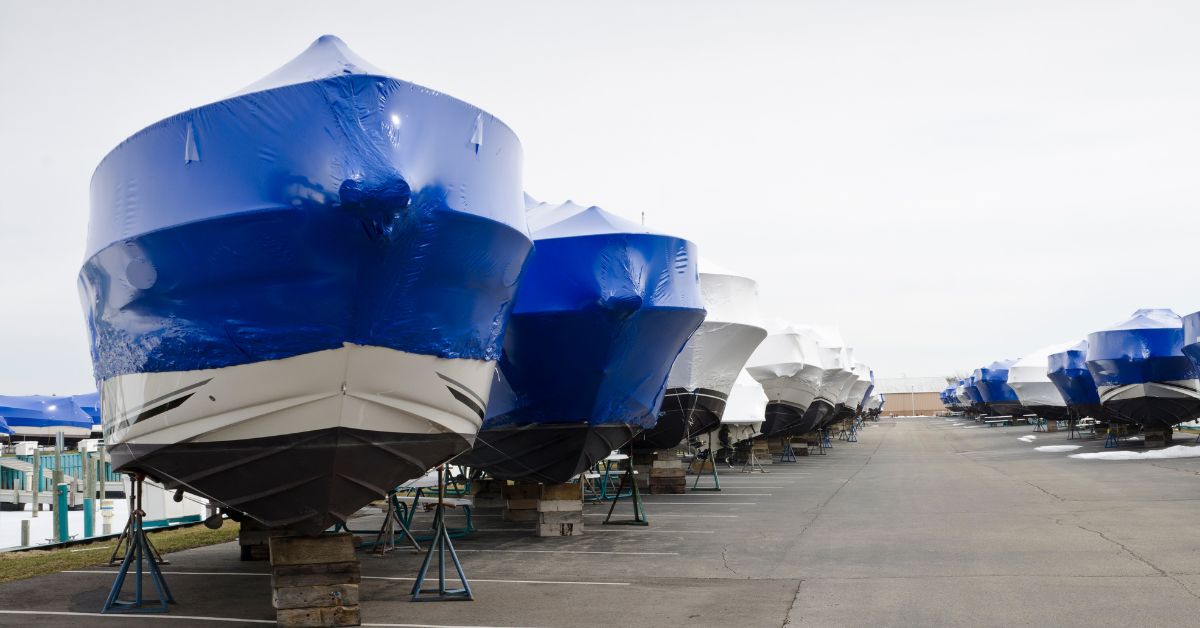We have put together a detailed list on the steps on ‘How To Winterize Your Boat.’ Feel free to use this checklist as a starting point, however always remember to check your boat owner’s manuals for any recommendations on steps or products. Each vessel may be different, so you want to ensure that you are using the correct products when it comes to antifreezes, fogging oils, and etc.
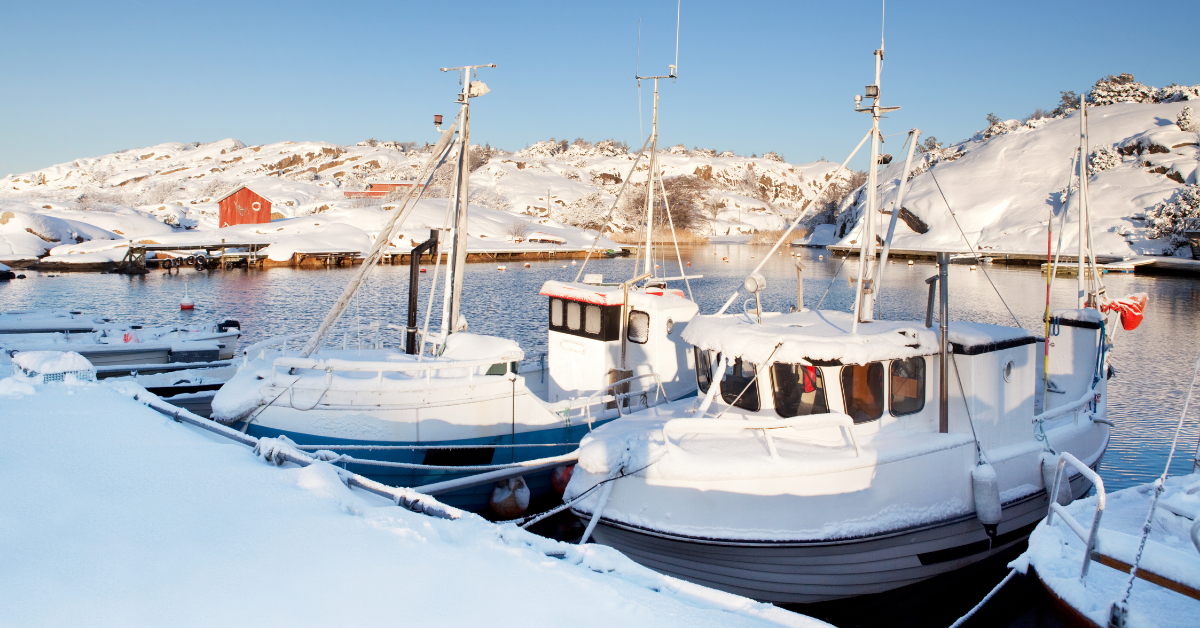
Inboard Engine(s)
- Run the engine(s) to warm it up & change the oil when its warm
- Change the oil filter
- Flush the engine(s) with fresh water
- Circulate the antifreeze through the manifold
- Change the fluid in your transmission
- Remove spark plugs & use ‘fogging oil’ to spray into each cylinder
- Wipe the engine with the fogging oil or WD-404
When it comes to changing the oil and fuel, be sure to follow our fueling procedures guide to ensure you’re handling your boat’s fuel safely and effectively.
Stern Drive(s)
- Inspect the stern drive & remove any plant life or barnacles
- Drain the gear case & check for excessive moisture in the oil
- Clean the lower unit with soap & water
- If your stern drive has a rubber boot, check for cracks or pinholes
- Grease all fittings & check fluid levels in hydraulic steering or lift pumps
Outboard Engine(s)
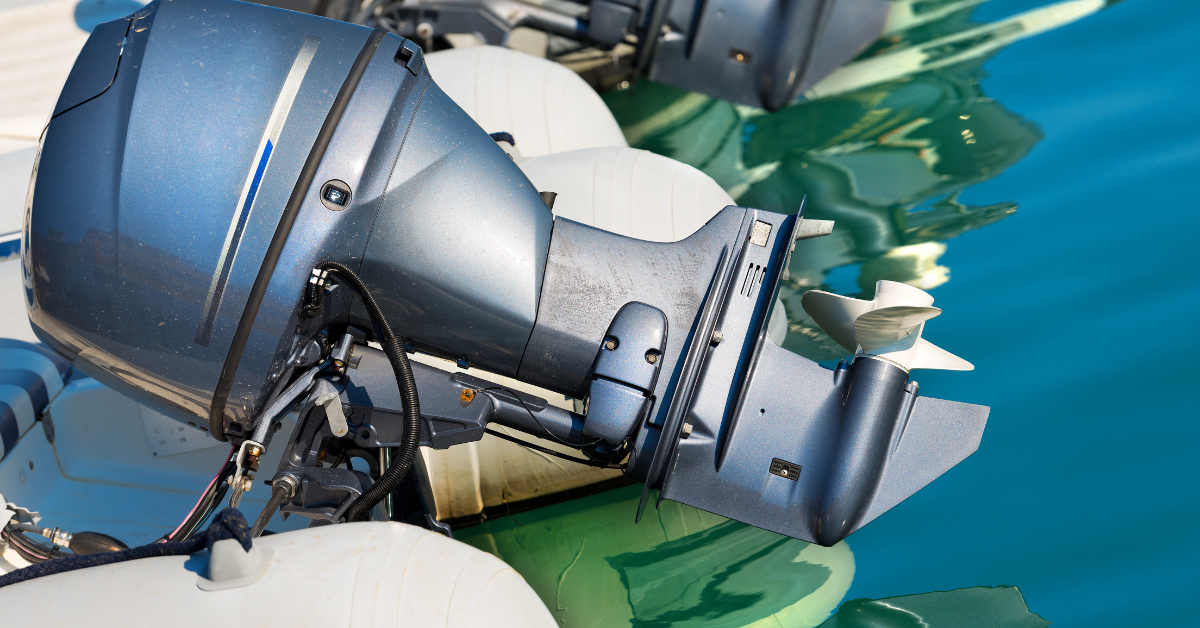
- Flush engine with fresh water
- Let all the water drain from the engine
- Wash engine down with soap & water
- Disconnect fuel hose and run engine until it stops
- Make sure that all fuel is drained from the carburetor to prevent build-up of deposits from evaporated fuel
- Use fogging oil in the cylinders to lubricate the cylinder walls and pistons
- Apply water resistant grease to propeller shaft and threads
- Change the gear oil in the lower unit
- Lightly Lubricate the exterior of the engine or polish with a good wax
While you’re maintaining your outboard engines, don’t forget to take care of your sails. Check out our guide on how to store your sails for winter.
Fuel
- Fill your fuel tank(s) to avoid a build-up of condensation
- Add a fuel stabilizer
- Change the fuel filter(s) and water separator(s)
While we’re on the topic of fuel, it’s worth noting that potential fuel leaks and spills could be a significant risk. Ensure you’re covered for such eventualities with the right boat insurance. Learn more about Navigating Boat Insurance: Coverage for On-Water and Off-Water Risks.
Bilges
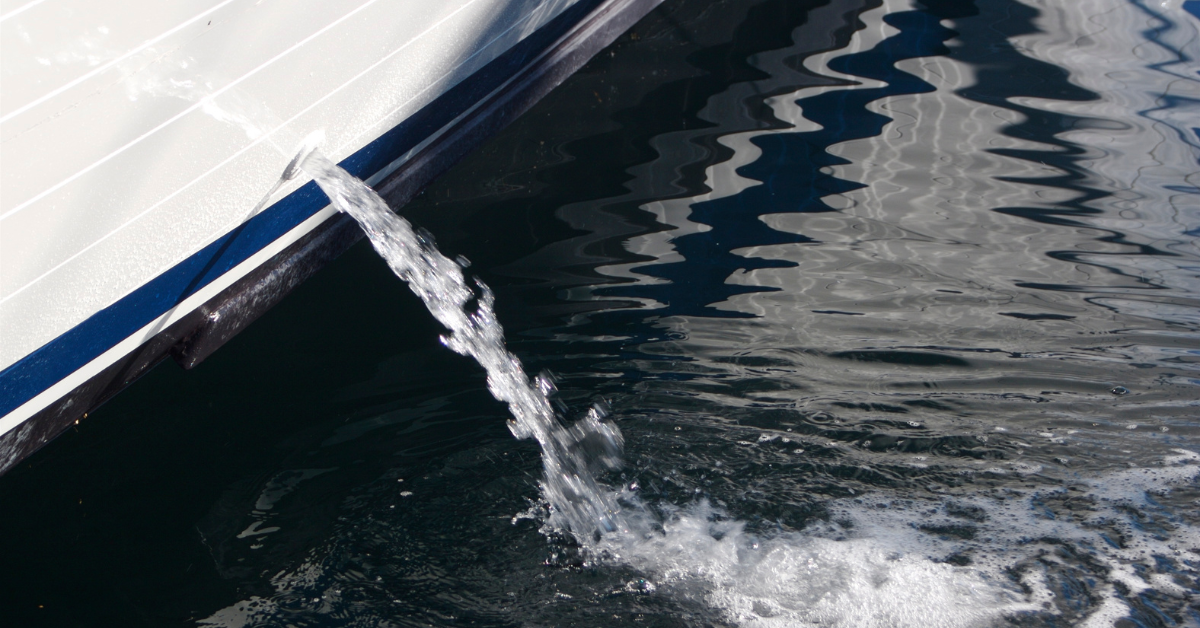
- Make sure the bilges are clean & dry
- Use soap & hot water to clean off any oil spills
- Once bilges are clean, spray with a moisture displacing lubricant
- Add antifreeze to prevent any water from freezing
Fresh Water System
- Completely drain fresh water tank and hot water heater
- Isolate the hot water heater by disconnecting the in/out lines and connect them together
- Pump a non-toxic antifreeze into the system & turn on all faucets including the shower and any wash-down areas until you see the antifreeze coming out
- Put non-toxic antifreeze into the water heater
Head
- Pump out the holding tank at an approved facility
- While pumping, add fresh water to the bowl and flush several times
- Use vanish crystals or whatever your owner’s manual recommends that will nto harm your system and let sit for a few minutes
- Add fresh water and pump out again
- Add antifreeze and pump through hoses, holding tank, t-valve, macerator and discharge hose
- Check owner’s manual to make sure an “alcohol based” antifreeze won’t harm your system
Interior
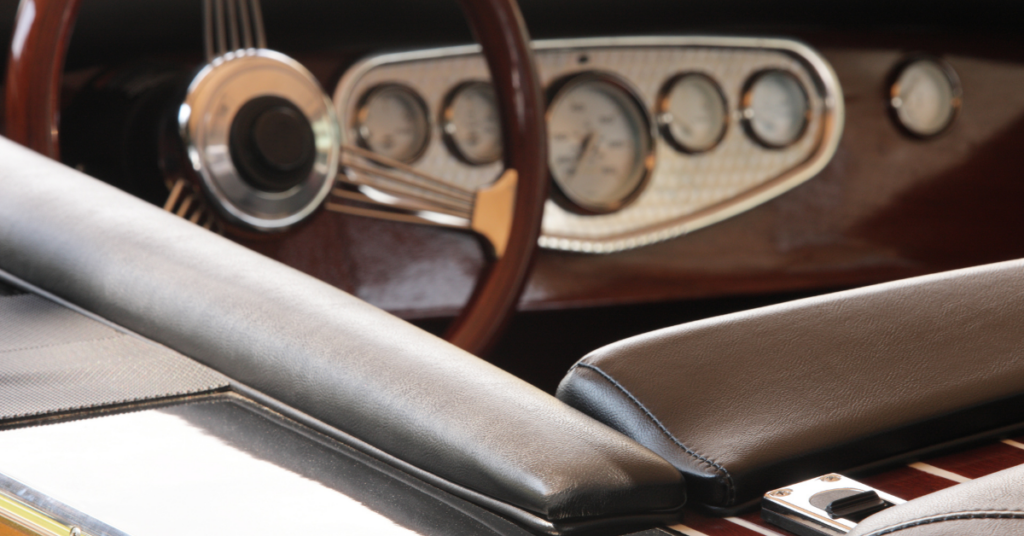
- Remove valuables, electronics, lines, PFDs, fire extinguishers, flares, fenders, etc
- Lift all seat cushions up on an edge to allow air to circulate
- To keep your boat dry and mildew-free, use a humidifier or moisture absorber products
Keeping your boat’s interior clean and dry is not only for comfort but also for safety. Find more about these and other safety tips for winter boating on our website.
Out of water Storage
- Clean barnacles off props, shafts, rudders, struts, and trim tabs
- Clean through hulls & strainers
- Open seacocks to allow water to drain
- Check hull for blisters
- Best to take the battery out of the boat – store on a trickle charger, or charge them every 30-60 days
Performing proper maintenance, such as battery care and hull inspections, can have a positive impact on your insurance. Read more about Protecting Your Boat: The Impact of Maintenance on Your Insurance.
In Water Storage
- Close all seacocks & check under shafts/stuffing boxes for leaks
- Make sure your battery is fully charged
- Clean terminals, add water if necessary
- Check bilge pumps & float switches
- Be sure to check your boat periodically
When storing your boat in water, remember to ensure that your boat is adequately insured, including during storage periods. Check out our tips on Insuring your Vessel While on the High Seas.
Note: HUB International is not responsible and accepts no liability for this the above checklist.
As you take these necessary steps to winterize your boat, remember that protecting your boat’s surroundings is also crucial. In addition to securing your boat, consider the professional tree maintenance services by Victoria arborists to ensure the area around your boat is safe and well-maintained. This can be especially important in areas with heavy snowfall or strong winds.
At HUB International MARINE, we specialize in providing comprehensive marine insurance solutions tailored to meet your specific needs. Whether you’re a commercial vessel operator or a recreational boater, having the right marine insurance offers peace of mind as you navigate through different water bodies. Get in touch with us today to learn more about our marine insurance policies and secure your vessel for the seasons ahead.
Bev Carlson
HUB International MARINE is based in the Greater Vancouver area and focuses on providing both pleasure craft and commercial marine insurance. We insure vessels of all sizes including sailboats, high performance vessels, runabouts, skipper charters, sailing dinghies, multi-hull boats, boat houses, offshore and liveaboards. We are also a leader in commercial marine insurance for boat manufacturers/dealers, yacht clubs & marinas and ship repairers along with other specialty marine businesses.
Original article source: www.boatsafe.com

